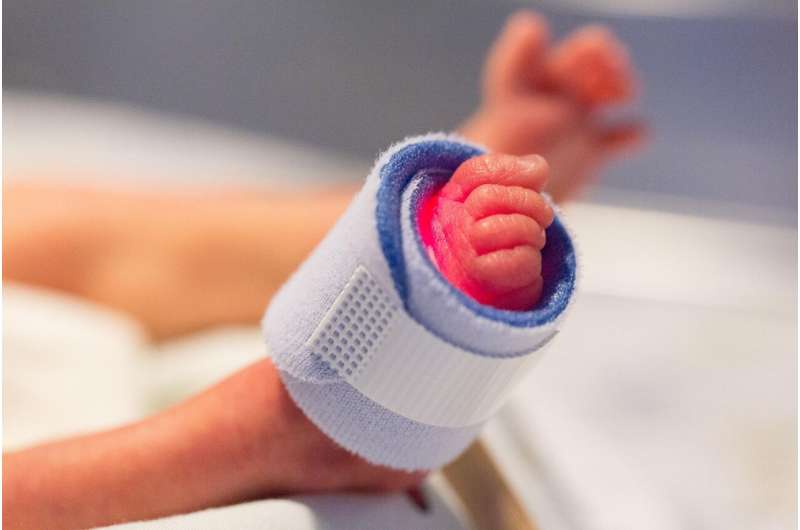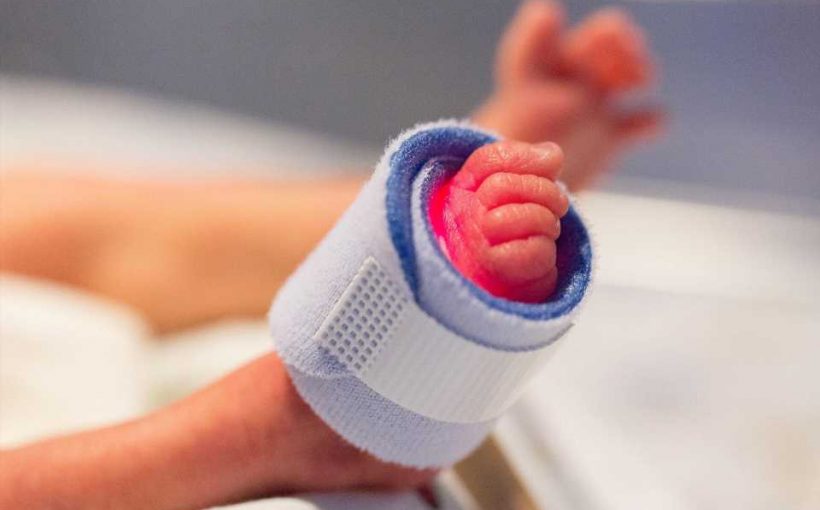
Skin-to-skin contact between parent and infant during the first hours after a very premature birth helps develop the child’s social skills. This is according to a new study published in JAMA Network Open by researchers from Karolinska Institutet and others. The study also shows that fathers may play a more important role than previous research has shown.
In current practice, very premature babies are usually placed in an incubator to keep them warm and to stabilize them during the first hours after birth. In the “Immediate parent-infant skin-to-skin study” (IPISTOSS), 91 premature babies born at 28 to 33 weeks were randomized to either traditional care in an incubator or immediate skin-to-skin contact with one of the parents.
The study has generated several results that show, among other things, that immediate skin-to-skin contact is safe for babies and beneficial for their cardiorespiratory stabilization and temperature maintenance, and that it is perceived as valuable by the parents.
Now, as part of this study, the researchers have also studied the social development at four months of age of 71 of these premature babies. The children were randomly assigned to receive either standard care in an incubator or to receive care resting on one of their parents’ breasts, either the mother’s or the father’s, for the first six hours after birth.
“What is new about our study is that we also allowed the fathers to have skin-to-skin contact immediately after the birth. In most previous studies, it is the mother who is the primary caregiver, but in our study it was the fathers who had the most skin-to-skin contact,” says Wibke Jonas, midwife, senior lecturer and associate professor at Karolinska Institutet’s Department of Women’s and Children’s Health, as well as research leader and last author of the study.
“The study has identified fathers as a previously untapped resource that really has an important function in having immediate skin-to-skin contact with their infant if the mother is not available,” says Siri Lilliesköld, Ph.D. student at the same department and specialist nurse in neonatal care, and first author of the study.
After four months, the social interaction between mother and infant was filmed and assessed by two psychologists who did not know which infant had received early skin-to-skin contact and which had not.
The quality of the interaction was measured according to the Parent-Child Early Relational Assessment (PCERA) scale, where different elements are graded between one and five, with one being cause for concern and five being very good quality.
The infants who received immediate skin-to-skin contact had significantly better results in a subscale measuring the infant’s communicative and social skills. On the five-point scale, their average score was closer to four, while the infants cared for according to current practice were just above three.
“What you could see was that the infants in the skin-to-skin group had slightly better communication skills, they were a bit more social and happier,” says Wibke Jonas.
Premature babies have developmental challenges as they grow up and need a lot of support. Even though medical developments have come a long way, the care of these babies still needs to be developed, the researchers say.
“If we combine the immediate medical care of the very premature babies with a relatively simple intervention such as skin-to-skin contact, it has effects on the infants’ social skills,” says Jonas Wibke and continues.
“Previous studies have shown that premature babies perform slightly poorer when socially interacting, for example, they do not give as clear signals in the interaction with their mothers. The closeness between babies and their parents at birth may therefore stimulate later interaction and thus the development of the infant.”
The benefits of immediate skin-to-skin contact are so clear that both Wibke Jonas and Siri Lilliesköld believe it should be introduced now in Swedish neonatal care. And this work is already underway, they say.
“We have worked very actively to minimize separation between infants and parents in general, and now we have the evidence to do the same with these very premature babies,” says Siri Lilliesköld.
The research team will continue to report on the development of the infants at 12 and 24 months.
The study is a collaboration between researchers from Karolinska Institutet and the University Hospital of Stavanger, Norway, and the University of Turku, Finland.
More information:
Skin-to-Skin Contact at Birth for Very Preterm Infants and Mother-Infant Interaction Quality at 4 Months—A Secondary Analysis of the IPISTOSS Randomized Clinical Trial, JAMA Network Open (2023). DOI: 10.1001/jamanetworkopen.2023.44469
Journal information:
JAMA Network Open
Source: Read Full Article
